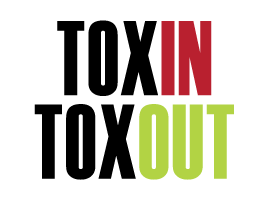U.S.A Reviews
“Beware the smiling creature in your bathtub: it’s yellow, it squeaks, your kids love it, and it gets into your bloodstream-literally.” High Country News
“Enviro-porn” Forbes.com
“Undertaking a cheeky experiment in self-contamination, professional Canadian environmentalists Smith and Lourie expose themselves to hazardous everyday substances, then measure the consequences… Throughout, the duo weave scientific data and recent political history into an amusing but unnerving narrative, refusing to sugarcoat any of the data (though protection is possible, exposure is inevitable) while maintaining a welcome sense of humor.”
Publishers Weekly (Starred review)
“[Slow Death by Rubber Duck’s] real achievement is in documenting how chemical giants stay a step ahead of regulators, and those revelations make the book ‘a fascinating and frightening read.’” The Week
“[Slow Death by Rubber Duck] isn’t just alarmist environmental shock and awe. It’s a thoughtful look at how pollution has shifted over the years from something tangible and transparent (industrial pollutants as the cause of acid rain) to something abstract and nuanced (BPA’s links to breast cancer). The challenges this change presents, as many of the world’s top scientists explain in these pages, should be of serious concern to us all.” O – The Oprah Magazine
“Slow Death by Rubber Duck is hard-hitting in a way that turns your stomach and yet also instills hope for a future in which consumers make safer, more informed choices and push their governments to impose tougher regulations on the chemicals all around us.” Washington Post
“This is one scary book. Using a variety of test methods, the authors determined individual “body burdens,” or the toxic chemical load we carry. The innocuous rubber duck, for example, offers a poison soup of phthalates that “permeate the environment and humans.” From other products and food we also have a collection of chemicals shorthanded as PFCs, PFOAs, PSOSs, and PCBs. None of them are good, and they are everywhere, thanks to Teflon (which drew the largest administrative penalty against a company ever obtained by the EPA), Stainmaster, nonflammable pajamas, tuna (hello, mercury), and, would you believe, anti-bacterial products. The legacy of our chemically addicted society is not just all around us but also inside us and it is killing us, as the Teflon case proved. (Workers in West Virginia believed that “having a
high-paying job often meant getting sick,” and many were reluctant to sue and possibly scare DuPont away.) Poised between chirpy green-living manuals and dense academic papers, Smith and Lourie have crafted a true guide for the thinking consumer. If readers don’t change their ways after reading this one, then they never will.” Colleen Mondor, The Booklist
“Fantastically important—an indispensable guide to surviving in an industrial age.”
Tim Flannery, author of Now or Never and The Weather Makers
“Did you know that cancer, infertility and even being fat may be linked to trace toxins we swallow every day? I wish this book were science fction . . . but it’s not. Let Smith and Lourie show you simple steps to help you go from guinea pig to protector of your family’s health.”
Harvey Karp, MD, FAAP, creator of the book/DVD, The Happiest Toddler on the Block
“If Hunter S. Thompson were locked in an analytical chemistry lab with a phlebotomist, this book might be the result. Slow Death by Rubber Duck is heartbreaking, funny, and knowledgeable all on the same page. The authors have also launched a new field of study: gonzo toxicology. Well done!” Sandra Steingraber, biologist and author of Living Downstream: An Ecologist Looks at Cancer and the Environment
“This book is an important wake up call for every mom and dad unaware of the ticking toxic timebomb that’s been lurking in our children’s toy chests, schools, and homes for years. From toxic PVC rubber duckies loaded with dangerous phthalates to BPA-contaminated baby bottles, Slow Death by Rubber Duck paints a sobering picture of the many harmful chemicals that pervade our homes, bodies, and communities, but more importantly lays out easy steps we can all take for building a healthier toxic-free future for our families and environment.”
Lois Gibbs, Executive Director, Center for Health, Environment & Justice, and organizer of the Love Canal Homeowners Association

